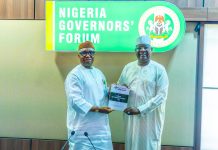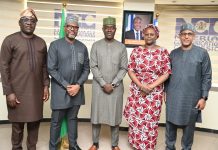According to Grant Phillips, CEO of e4, a leading fintech specialist, 2021 will see the rise and dominance of the low-touch economy with a digital-first mantra. Driven by the impact that the Covid-19 pandemic had on the global economy, Phillips says that business adoption of low-touch interactions and permanent industry shifts and pivots will take centre stage through the course of 2021.
“The business-world, quite obviously, is not the same as it was before. There is a renewed energy and effort with a high level of optimism, but many lessons have been learnt and the subsequent scaring is real. We have seen that many of the businesses which were paying lip service to digital transformation have now been forced to act due to Covid-19’s low-touch phenomenon. Centred on a low/no-touch world, customers want the distance but without sacrificing the experience. If nothing else, Covid-19 has taught us that digital transformation, digital servicing, and broader digital enablement is no longer a nice-to-have, but a necessity for business survival.”
Phillips says that he sees this shift as a watershed for innovation and one where only those who embrace digital transformation and the low-touch economy will thrive: “We anticipate that this ‘new normal’ will be pervasive for at least another two years, bringing with it many different and changing customer and user experience challenges. I believe that if a business is not agile or almost immediately responsive, the ability to remain relevant is severely limited.”
The low-touch economy has escalated the need for further focus on improved customer experience (CX) with several companies designing and delivering experiences differently, considering implications of the pandemic and how to still deliver value in this low-touch economy. Phillips says that it is no longer just about reducing physical interaction points, but is now about shifted customer expectations as a result of new guidelines, regulations, and restrictions: “It is normal for clients to be wary about physical contact or enclosed spaces, and businesses as a result are now pivoting to try deal with these challenging, but necessary business constraints. It is within this scenario that we have seen digital adoption accelerating across a variety of sectors.”
Digital-first is what Phillips says businesses are now embracing, knowing that the low-touch economy is here to stay and that while the pandemic may pass, the changed behaviour, and new mindsets, will have blended with the old.
“While it differs based on the businesses, we anticipate that a digital-first strategy will start to dominate how businesses approach CX. We have seen that while the pandemic wreaked havoc on economies, it did give rise to a new and more efficient way of working for people – a leaner almost decentralised way of working that generally has delivered increased productivity and overall business and employee satisfaction,” says Phillips.
The challenge of this new economy is that while it took decades, and a pandemic, to establish new and more forward-thinking business approaches, new habits are being adopted rapidly, from years to months.
“How we navigate the next couple of years is of paramount importance. As global economies struggle to recover and also reset using a very different playing field, digital transformation can no longer just be a buzz word but needs to find its place on agendas in every boardroom.” says Phillips.








